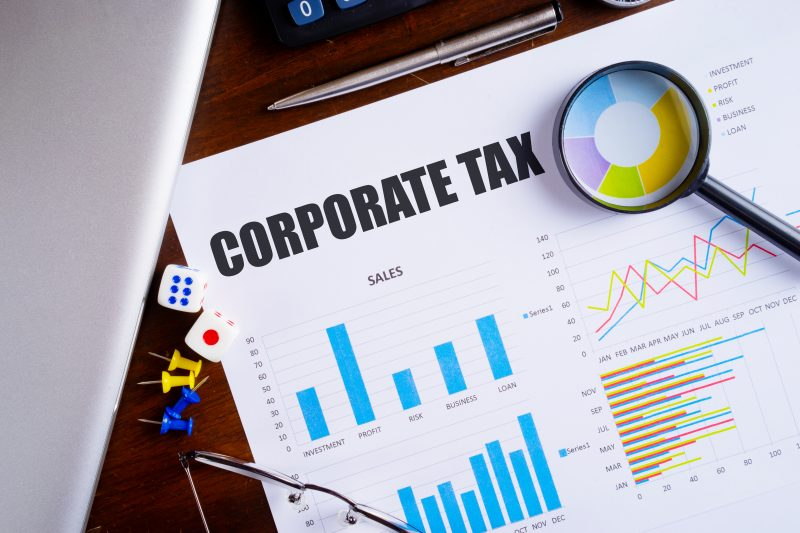Now Reading: Dubai Real Estate: 6 Corporate Tax Strategies for Rental Investors in 2025
-
01
Dubai Real Estate: 6 Corporate Tax Strategies for Rental Investors in 2025
Dubai Real Estate: 6 Corporate Tax Strategies for Rental Investors in 2025

Table of Contents
Corporate Tax : Dubai’s real estate market in 2025 remains a global investment hub, with 99,000 transactions worth AED 326.7 billion in H1 and projected 5-9% price growth, per Dubai Land Department (DLD) data. Offering 6-10% rental yields, the market benefits from no personal income tax, capital gains tax, or annual property tax, with residential leases zero-rated for VAT (0%), per Federal Tax Authority (FTA) rules.
However, corporate investors face a 9% corporate tax on profits above AED 375,000, introduced in 2023 under Federal Decree-Law No. 47, unless mitigated by strategic structures. Regulated by RERA under Law No. 6 of 2019, Dubai ensures transparency via Mollak and escrow accounts.
The Golden Visa (AED 2 million+ investments) and First-Time Home Buyer Program (5% discounts on properties up to AED 5 million) enhance appeal. Below are six corporate tax strategies for rental investors in 2025, designed to minimize tax burdens and maximize returns in Dubai’s tax-advantaged market.
1. Establish a Qualifying Free Zone Person (QFZP) Entity
Qualifying Free Zone Persons (QFZPs) in free zones like DMCC or Jebel Ali Free Zone (JAFZA) enjoy 0% corporate tax on rental income for 50 years (renewable), per FTA rules. For a AED 4 million Business Bay portfolio yielding AED 280,000 annually (7%), a QFZP saves AED 25,200 in 9% corporate tax. Setup costs AED 15,000-25,000, with annual audits (AED 5,000-10,000). Non-compliance risks AED 50,000 penalties. Register via DMCC or JAFZA portals, ensuring FTA-compliant records, and pair with VAT-exempt leases (AED 14,000/year savings) for 6-7.5% yields.
2. Utilize Corporate Restructuring Transfers
Transfers of rental properties between related corporate entities within the same group are exempt from the 4% DLD transfer fee and treated as tax-neutral for corporate tax, per DLD and FTA rules. This saves AED 160,000 on a AED 4 million Downtown Dubai property and avoids tax on unrealized gains. Submit shareholder agreements proving common ownership via Dubai REST within 30 days, avoiding AED 10,000-20,000 penalties. Combine with QFZP status for 0% corporate tax, ensuring 5.5-7% yields.
3. Leverage VAT-Exempt Residential Leases

Residential leases are VAT-exempt, saving 5% compared to commercial leases, per FTA guidelines. For a AED 2.5 million JVC portfolio yielding AED 175,000 annually (7%), this saves AED 8,750/year. Incorrect lease classification risks AED 10,000-50,000 penalties. Register tenancy contracts via Ejari (AED 219.75) to confirm VAT-exempt status, and use QFZP structures to avoid 9% corporate tax (AED 15,750 savings), securing 7-9% yields.
4. Optimize Deductible Expenses
Corporate tax allows deductions for expenses like maintenance, service charges (AED 10-20/sq.ft.), and management fees (8-12%), per FTA rules. For a AED 2 million Dubai Marina apartment yielding AED 130,000, deducting AED 20,000 in service charges and AED 15,600 in management fees reduces taxable income to AED 94,400, saving AED 3,204 in 9% tax. Maintain FTA-compliant records to avoid AED 5,000 audit penalties. Self-manage via Ejari to eliminate management fees, boosting 6-7.5% yields.
5. Invest in Off-Plan Projects with Tax Incentives
Off-plan projects (70% of Q1 2025 sales) offer developer-sponsored 4% DLD waivers (AED 40,000-80,000 on a AED 2 million Dubai South apartment) and 5-20% discounts (AED 100,000-400,000), per DLD data. These reduce capital costs, lowering taxable rental profits. Verify escrow accounts via Oqood to avoid AED 10,000-50,000 penalties, and combine with QFZP status for 0% corporate tax (AED 5,040-16,200 savings), ensuring 7-9% yields.
6. Use Fractional Ownership via Tokenization
Blockchain-based tokenization allows fractional property ownership, reducing individual corporate tax liability by spreading profits across multiple entities, per FTA guidelines. For a AED 3 million Palm Jumeirah villa yielding AED 180,000, tokenizing among five investors caps each entity’s profit below AED 375,000, avoiding 9% corporate tax (AED 16,200 savings). Platforms like Prypco ensure RERA compliance, avoiding AED 10,000-50,000 penalties. Pair with VAT-exempt leases (AED 9,000/year savings) for 5-6% yields.
Why These Strategies Reduce Corporate Tax
These strategies QFZP entities, corporate restructuring, VAT-exempt leases, deductible expenses, off-plan incentives, and tokenization save AED 8,750-160,000 annually and avoid penalties of AED 5,000-50,000, per DLD’s AED 761 billion 2024 transactions. Combined with 0% VAT on residential sales (AED 100,000-200,000), no income/capital gains tax, and 90-95% occupancy driven by 25 million tourists, they boost net yields by 0.5-1%. Budget hidden costs: 4% DLD fees (AED 80,000-200,000), 2% agency commission (+5% VAT, AED 11,550-63,000), and service charges (AED 10-30/sq.ft.).
Implementation Strategies
- Register a QFZP in DMCC or JAFZA (AED 15,000-25,000 setup), maintaining FTA-compliant audits to save AED 5,040-25,200 in corporate tax.
- Execute corporate transfers with ownership proof via Dubai REST, saving AED 80,000-160,000 in DLD fees and avoiding tax on gains.
- Register leases via Ejari (AED 219.75) for VAT-exempt status, saving AED 8,750-14,000/year and avoiding AED 10,000-50,000 penalties.
- Track deductible expenses (service charges, maintenance) with FTA-compliant records, saving AED 3,204-16,200 in tax.
- Invest in off-plan projects with DLD waivers (AED 40,000-80,000) and discounts (AED 100,000-400,000), verifying escrow via Oqood.
- Use tokenization for fractional ownership, capping profits below AED 375,000 to avoid corporate tax, ensuring RERA compliance.
- Budget 8-12% for closing costs and service charges, using Mollak for transparency.
- Plan home-country taxes: U.S. investors use IRS Form 1118 for DTA credits; Indian investors comply with Liberalised Remittance Scheme ($250,000 limit). Muslim investors account for 2.5% Zakat (e.g., AED 4,000 on AED 160,000 rent).
Outlook for Dubai’s 2025 Market

Dubai’s Economic Agenda D33, 2040 Urban Master Plan, and infrastructure like Metro Blue Line and Al Maktoum Airport drive demand. Despite 76,000 new units, 90-95% absorption rates and RERA protections mitigate oversupply. Off-plan sales with 5-20% discounts and Golden Visa eligibility fuel affordability, per Dubai Real Estate Strategy 2033. These strategies ensure 6-10% yields and 8-15% capital gains.
Conclusion
Establishing QFZP entities, leveraging corporate restructuring, using VAT-exempt leases, optimizing deductible expenses, investing in off-plan projects, and employing tokenization are six corporate tax strategies for rental investors in Dubai’s 2025 market.
Saving AED 8,750-160,000 annually and avoiding penalties, these approaches maximize returns in a tax-advantaged environment. With RERA compliance, strategic budgeting, and home-country tax planning, investors can thrive in Dubai’s dynamic real estate landscape. Corporate Tax
read more: Dubai Property Tax: 5 Legal Mistakes That Increase Transaction Costs in 2025



















